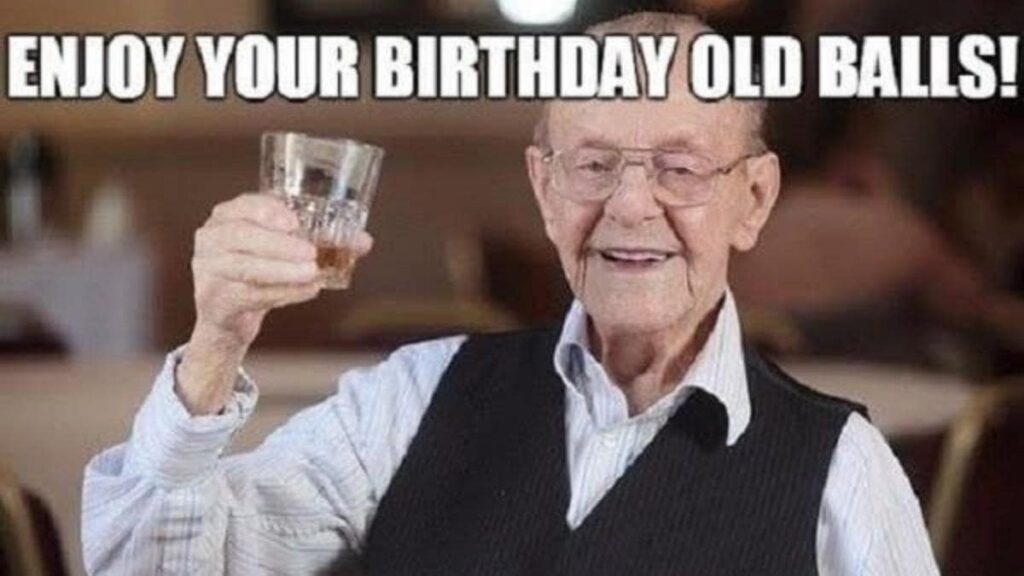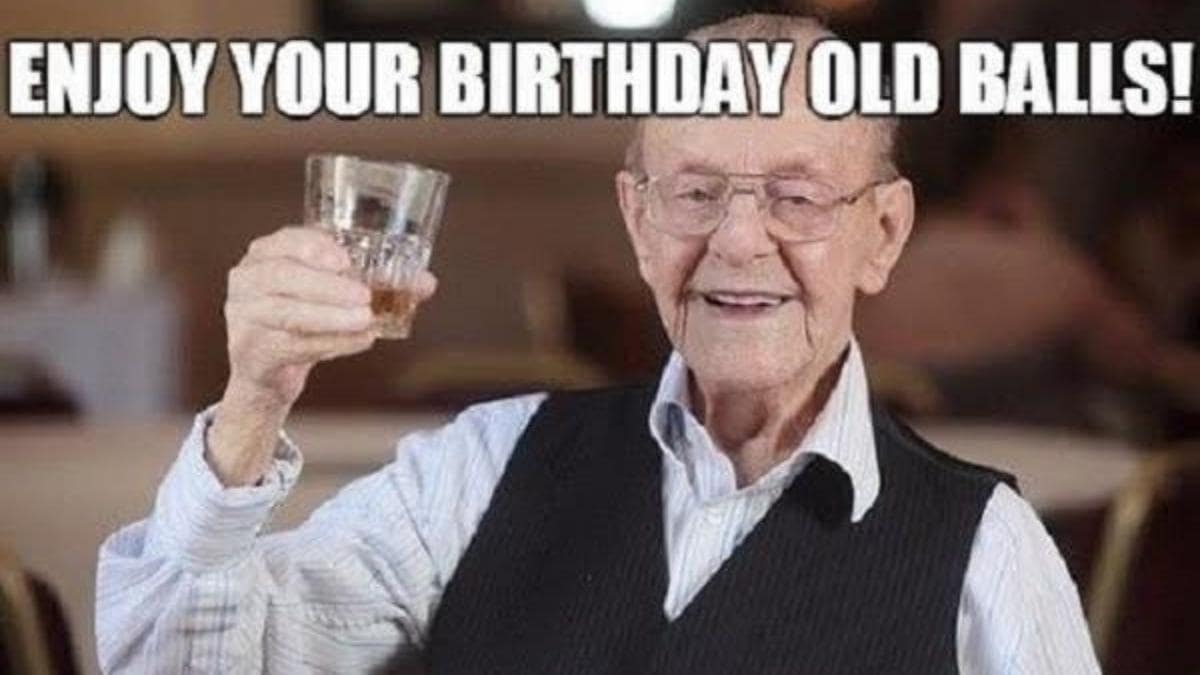
Dirty Old Man Memes: Humor, Controversy, and the Shifting Sands of Social Acceptability
The internet, a vast and often bewildering landscape, is fertile ground for memes. Among the countless viral images and catchphrases, some trends spark debate, raise eyebrows, and force us to confront uncomfortable truths about ourselves and our society. One such phenomenon is the proliferation of “dirty old man” memes. These memes, often featuring stock photos of elderly gentlemen with suggestive captions, navigate a tricky terrain of humor, ageism, and potentially harmful stereotypes. Understanding the context, the controversy, and the underlying social commentary is crucial to dissecting the impact of these memes. This article aims to explore the world of dirty old man memes, examining their origins, their appeal, and the ethical considerations they raise.
The Anatomy of a Dirty Old Man Meme
So, what exactly *is* a dirty old man meme? Typically, these memes consist of an image – frequently a stock photo or a screenshot from a television show or movie – of an older man. The accompanying text usually implies or explicitly states a lewd or inappropriate thought or action, often directed towards younger women. The humor derives from the juxtaposition of the elderly figure with the perceived inappropriateness of the behavior. The joke hinges on the stereotype of older men as being sexually predatory or fixated on youth.
Common Themes and Tropes
- The Gaze: Many memes focus on the “creepy old man” trope, highlighting the way an older man might stare at a younger woman.
- Inappropriate Comments: Memes often feature older men making suggestive or offensive remarks.
- Power Dynamics: Some memes touch on the imbalance of power between older men and younger women, often in a workplace or social setting.
- Ageism: Underlying many of these memes is the assumption that older men are inherently perverted or out of touch.
The Appeal of the Absurd: Why Are These Memes Popular?
Despite the potential for offense, dirty old man memes have found a significant audience online. Several factors contribute to their popularity:
- Humor as a Coping Mechanism: Humor can be a way to deal with uncomfortable or taboo subjects. These memes might provide a cathartic release for anxieties surrounding aging and sexuality.
- Subversion of Expectations: The humor often comes from the unexpected contrast between the perceived innocence of old age and the vulgarity of the content.
- Relatability (for some): Some people might find these memes funny because they see a kernel of truth in the stereotype, or because they know someone who fits the description.
- Internet Culture: The internet thrives on irony and shock value. Dirty old man memes often push the boundaries of what is considered acceptable humor, making them appealing to some online communities.
The Dark Side of the Joke: Ethical Considerations
While humor is subjective, it’s essential to acknowledge the potential harm that dirty old man memes can inflict. The lighthearted facade often masks deeper, more problematic issues:
- Reinforcing Negative Stereotypes: These memes perpetuate harmful stereotypes about older men, portraying them as inherently predatory or perverted.
- Trivializing Sexual Harassment: By making light of inappropriate behavior, these memes can contribute to a culture that normalizes sexual harassment and assault.
- Ageism and Discrimination: The memes can reinforce ageist attitudes and contribute to the marginalization of older people.
- Impact on Victims: For individuals who have experienced sexual harassment or abuse, these memes can be triggering and re-traumatizing.
The Role of Context and Intent
It’s important to consider the context in which a dirty old man meme is shared and the intent behind it. Is the meme intended to be genuinely funny, or is it meant to be offensive or harmful? Is it being shared in a private group among friends, or is it being broadcast to a large audience? The answers to these questions can help determine the ethical implications of the meme.
The Shifting Sands of Social Acceptability
What was considered acceptable humor in the past may no longer be acceptable today. As society becomes more aware of issues like sexism, ageism, and sexual harassment, the line between harmless joke and harmful stereotype is constantly shifting. The popularity of dirty old man memes raises questions about our collective values and the types of humor we choose to consume and share. It forces us to consider the impact of our words and actions, even in the seemingly harmless realm of online memes.
The #MeToo Movement and Its Impact
The #MeToo movement has played a significant role in raising awareness about sexual harassment and assault. As a result, there is a greater sensitivity to jokes and memes that trivialize these issues. What might have been considered a harmless joke a few years ago may now be seen as offensive and inappropriate. The rise of the #MeToo movement has undoubtedly influenced the way we perceive and react to dirty old man memes.
Beyond the Meme: Addressing Ageism and Misogyny
The debate surrounding dirty old man memes extends beyond the realm of internet humor. It highlights the need to address deeper issues of ageism and misogyny in our society. We need to challenge the stereotypes that perpetuate these biases and create a more inclusive and respectful environment for everyone.
Promoting Positive Representations of Aging
One way to combat negative stereotypes about older people is to promote positive representations of aging in media and popular culture. We need to showcase the diversity and vitality of older adults and challenge the notion that aging is synonymous with decline and irrelevance.
Educating About Consent and Respect
Education is crucial in preventing sexual harassment and assault. We need to teach young people about consent, respect, and healthy relationships. We also need to challenge the cultural norms that normalize and excuse inappropriate behavior.
Conclusion: Navigating the Murky Waters of Humor
Dirty old man memes occupy a complex and often contradictory space in online culture. They can be funny, offensive, thought-provoking, and harmful, all at the same time. As consumers of online content, we have a responsibility to be critical and mindful of the messages we are sending and receiving. While humor can be a powerful tool for connection and communication, it should not come at the expense of others. We must strive to create a more inclusive and respectful online environment where everyone feels safe and valued. The prevalence of dirty old man memes serves as a reminder of the ongoing need to address ageism, misogyny, and the trivialization of sexual harassment in our society. The internet, as a reflection of ourselves, holds a mirror to our biases and prejudices. It is up to us to decide what kind of reflection we want to create. By engaging in thoughtful dialogue and promoting positive representations, we can move beyond harmful stereotypes and build a more equitable and just world. The next time you encounter a dirty old man meme, take a moment to consider its potential impact and whether it aligns with your values. Are you laughing with it, or are you complicit in perpetuating harmful stereotypes? The answer may not always be clear, but the question is worth asking.
[See also: The Psychology of Internet Memes]
[See also: Ageism in Modern Media]
[See also: Understanding Sexual Harassment]

